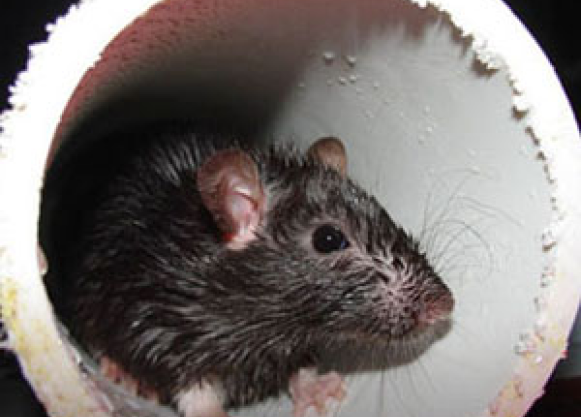Rodents
Have you ever experienced minding your own business and then suddenly hearing thumps and squeaks in the background? You turn your head only to see a vague creature quickly pass by in your peripheral vision. You also notice some holes in random areas, whether it be on your clothes or on your wall. “Hmm... Rats.” you muttered to yourself.
Rodent infestations are to be taken seriously as they caused life-threatening diseases many times in history. Protect yourself and property by knowing more about them.
What is a Rodent?
Rodents are mammals that have 2,000 different species which is equivalent to 43% of all mammals worldwide. Its important role in ecology is to disperse seeds, pollinate, become a food source for many predators, and many more. They have a pair of inscissors in front and molars in the interior back far from their mouth which they use to gnaw on their food.
Despite their contributions to the ecosystem, rodents are unwanted pests that can damage your home, and be a vessel for a variety of harmful bacteria and viruses through urine, saliva, bites, or feces contact.


Common Types of Rodents in the Philippines


Disadvantages of Rodent Infestation
- They can cause damage to your homes.
Rodents are known to chew on a lot of things. These little creatures might want to take shelter inside your house and make themselves feel comfortable by eating your food stocks. With their sturdy incissors, they can chew on your wooden walls could potentially allow more pests inside (especially if water can enter your home which could create moisture in your property), or damage live wires that could become a fire hazard. - They can carry diseases into your property.
A lot of rodent species in the Philippines live in the sewer systems, which are one of the dirtiest places you could ever think of. If they enter your property and ran through your food preparation area, left some bodily wastes, and helped themselves to your food, it would definitely cause some health problems.
- They can cause damage to your homes.
Rodents are known to chew on a lot of things. These little creatures might want to take shelter inside your house and make themselves feel comfortable by eating your food stocks. With their sturdy incissors, they can chew on your wooden walls could potentially allow more pests inside (especially if water can enter your home which could create moisture in your property), or damage live wires that could become a fire hazard. - They can carry diseases into your property.
A lot of rodent species in the Philippines live in the sewer systems, which are one of the dirtiest places you could ever think of. If they enter your property and ran through your food preparation area, left some bodily wastes, and helped themselves to your food, it would definitely cause some health problems.
Signs of Rodent Infestation
- Rodent Droppings
Spotting rodent dropping is among the easiest signs of rodent infestation. It is black in color, and half of an inch long. Make sure to use gloves when handling rodent droppings! - Footprints
These rodent tracks might show up on dusty areas of the property. They might even stretch the prints out to clean areas. Be on the lookout for these marks. - Hole in the Wall
Rodents will chew on walls to create entry points in your property. If you ever see some holes, be alert for rodent infestations. These holes could also be an entrance for other kinds of pests. - Chew Marks
Have you noticed any holes in your shirt? How about your wires? Rodents like to chew on materials to file their incessors. - Rotting Odor
If your property smells like a dead rodent, it’s best to call a licensed pest control professional to handle the hazardous carcass and let them check for more rodents. - Noise
If you could hear some squeaking, scratching, or scampering noise in your property, that is a good chance that a rodent is in your vicinity.
Rodent Infestation Prevention
- Seal up your home
Close all possible entry points on your property. Watch out for opened windows, vents, doors, etc. - Consider owning some pets
Cats and dogs are great hunters for these little pests. It is also great that cats have a scent that deters rodents, so they don’t need to do much for rodents to flee. - Clean up your yard
Yards can be very messy sometimes. Garbage and debris clean-ups could help prevent rodents from taking shelter in those piles of clutters. - Invest in mint
Rodents hate the scent of mint. You can choose to surround your property with peppermint plants or use some peppermint spray in areas susceptible to rodent infestations. - Clean your house regularly
Don’t leave food sitting out and clean up crumbs on your property. Make sure that rodents won’t smell anything they might enjoy.
Sources: https://www.cdc.gov/rodents/index.html
https://pubmed.ncbi.nlm.nih.gov/4620724/
https://www.orkin.com/pests/rodents/rats/diseases-that-are-spread-or-carried-by-rats
https://www.epa.gov/rodenticides/identify-and-prevent-rodent-infestations

Why is Rodent Pest Control Necessary?
Rodents are one of the most dangerous pests out there. Aside from these creatures being stubborn, It could be life-threatening if they were not handled properly. Leave it to the experts who have wide knowledge about how to deal with these rodents, and have your peace of mind while it is being dealt with.
We, at SureSolutions Inc., only want the best results for you and your properties, and as pest control professionals, we are here to make sure that rodents in your property are completely eradicated.









